What is Rick Simpson Oil (RSO): Does It Work?
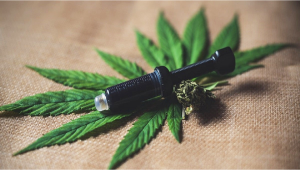
- 1. What is rso oil?
- 2. Who is rick simpson?
- 3. Benefits of rso
- 4. Rick simpson oil vs. cannabis oil
- 5. How to make rick simpson oil (rso)?
- 5. a. Rso oil ingredients
- 5. b. Step 1. get a pound of bud
- 5. c. Step 2. crush the bud in a bucket and wash it with alcohol
- 5. d. Step 3. filter out the extract into clean containers
- 5. e. Step 4. evaporate the solvent in a rice cooker
- 5. f. Step 5. draw your finished product into syringes
- 6. How to use rso oil?
- 6. a. Week 1. start with a tiny drop three times a day
- 6. b. Weeks 2-5. gradually ramp up the intake
- 6. c. Weeks 6-12. stay at the 1-gram-per-day level
- 7. Can rso treat cancer?
- 8. Side effects of rso
- 9. The bottom line
- 10. Faq
- 10. a. Does rick simpson oil (rso) contain thc?
- 10. b. Can you overdose on rick simpson oil (rso)?
- 10. c. Can you smoke or dab rso?
- 10. d. Can you cook with rso oil?
- 10. e. Why is rso banned in many countries?
- 10. f. Where is rick simpson today?
If you start looking for a person who played the most important role in popularizing the notion of medical marijuana, the name Rick Simpson immediately comes to mind. Rick Simpson oil has become a legend as this medicine takes on one of the greatest threats to our health and longevity – cancer. It may be still too early to substantiate the claim that RSO oil in fact cures cancer, but the evidence has been building and is definitely worth looking into.
What is RSO Oil?
Rick Simson oil, or RSO for short, is a form of cannabis concentrate which is very viscous and dark-colored and looks like tar. It's a whole-plant concentrate, meaning that it contains THC and other cannabinoids, as well as terpenes and flavonoids (those give cannabis its characteristic smell and taste). As a concentrated form of marijuana, RSO is extremely potent – a drop as small as a grain of rice is enough to be therapeutically effective. This medicine carries the name of Rick Simpson as he was the one who pioneered it back in the day.
Who is Rick Simpson?
Rick Simpson is a Canadian engineer and cannabis activist whose health issues led him to explore the medical properties of marijuana. He first used it for dizziness and other symptoms that he was suffering after an injury, but he became famous when he successfully treated skin cancer with a homemade cannabis concentrate.

The condition Rick Simson suffered from is called basal cell carcinoma, and when he found studies online that describe the anti-cancer properties of cannabis, he decided to give it a try. His method was very simple: he applied his marijuana concoction directly on the lesion and covered it with a bandage. The man claims that his skin cancer was gone after several days of the treatment with what has since become known as 'Rick Simpson Oil'.
Benefits of RSO
The therapeutic potential of this particular form of cannabis extract needs more studying, but one thing is clear: Rick Simpson oil is just another method of consuming medical marijuana, and medical marijuana has well-documented efficacy. When advocating the use of his oil, Rick Simpson suggested that it should be used topically for skin cancer and other such conditions. However, it can also be effective for anything where marijuana in general is prescribed.
Internal Use
- Multiple sclerosis (MS)
- Asthma
- Pain
- Loss of Appetite
- Insomnia
- Inflammation
- Hypertension
- Depression
Topical Use
- Arthritis
- MRSA and similar skin infections
Rick Simpson Oil vs. Cannabis Oil
The name 'Rick Simpson Oil' can be rather misleading because of the 'oil' part. Many people picture something like CBD oil or a similar infusion, but it's a mistake. Different forms of traditional cannabis oil all make use of the fact that THC, CBD, and other cannabinoids are fat-soluble. So, you take coconut or olive oil or even butter and make sure cannabinoids from the plant matter seep into this fatty substance and stay there.
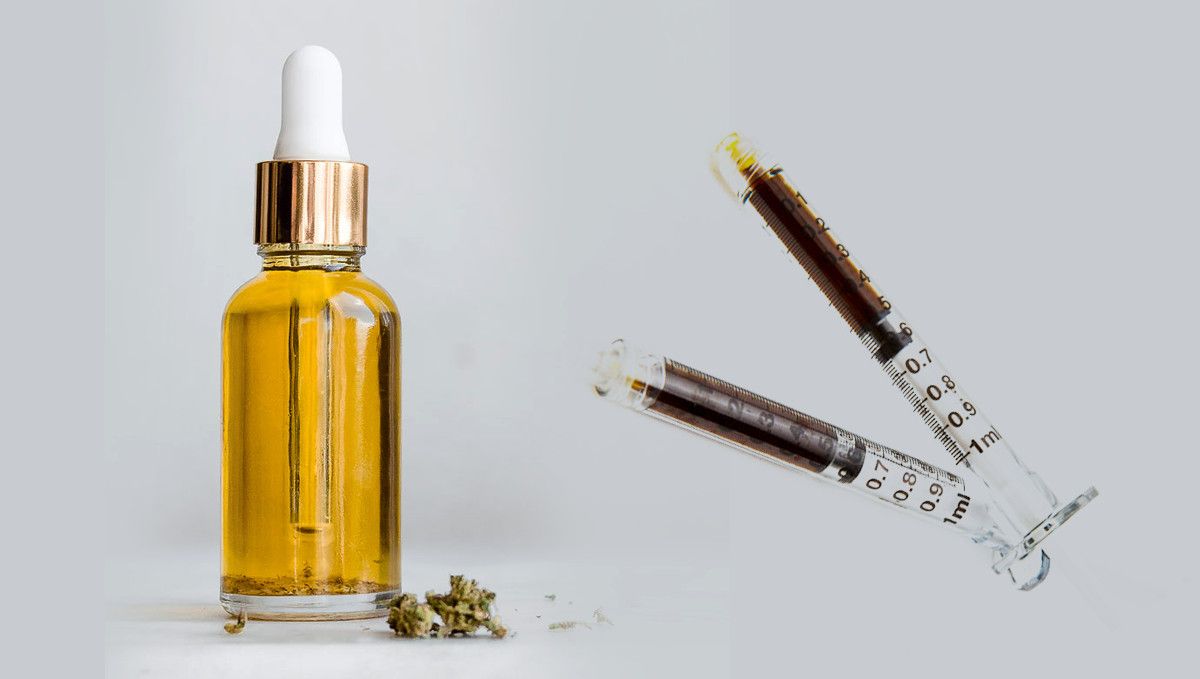
Rick Simson Oil is totally different. If you prepare it right, it contains nothing but cannabis resin. This way, it's more like wax, shatter, live resin, or any other concentrate used for dabbing. It may have a different color and texture, and it's certainly produced differently, but it's really just that – pure concentrated whole-plant cannabis resin.
How to Make Rick Simpson Oil (RSO)?
The main process in making RSO is the extraction of psychoactive and aromatic compounds from buds and leaves with the use of a solvent. There are a lot of solvents that you can try, but the original recipe involves grain alcohol. When reading the instructions below, don't forget that alcohol and other solvents are flammable and can cause fires. That's why making RSO at home is prohibited in many jurisdictions. Not to mention that in many places cannabis and all its products are illegal. Please make sure you know the law and are aware of the dangers.
RSO Oil Ingredients
- Dried buds and trim leaves, 1 pound
- High-grade grain alcohol, 2-2.5 gallons (8-9 liters)
- A 2x2 furring strip to crush the buds
- Two 5-gallon (20-liter) buckets
- Several small containers
- Funnels and coffee filters
- A rice cooker (rice steamer)
- Plastic syringes
Step 1. Get a pound of bud
Rick Simson Oil is highly concentrated, so you need a lot of weed to get a sizeable amount of this medicine, and one pound is a good starting point. It's best to use pure Indicas or Indica-dominant strains as they are the most effective for medical purposes and produce a lot of resin for extraction. Consider such landraces as Afghan Kush, classics like Blueberry and Northern Lights, or trending hybrids like Purple Punch.
Step 2. Crush the bud in a bucket and wash it with alcohol
Put the buds into a bucket, pour enough alcohol to cover them, and crush them with a 2x2 furring strip. Then, spend a few minutes stirring the mixture around the bucket. This will make some of the trichomes fall off from the buds and trim leaves, and you can drain most of the alcohol into another bucket. Then repeat the process with the remainder of the alcohol.
Step 3. Filter out the extract into clean containers
Place coffee filters inside funnels and pour the mixture through them into containers. You can throw away any plant material that gets filtered out.
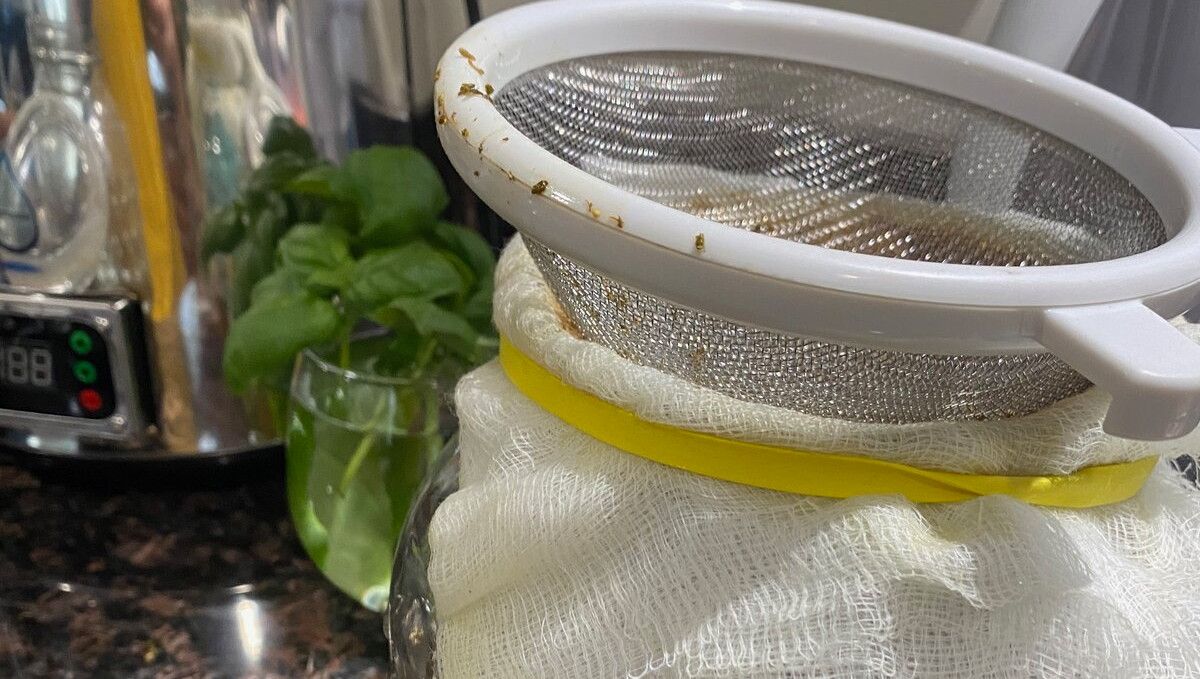
Step 4. Evaporate the solvent in a rice cooker
To make your RSO weed a concentrated and safe medicine, you need to evaporate the solvent completely. Please be aware that even grain alcohol promotes cancer, and this is the last thing you need in an anti-cancer medicine. Other solvents, such as butane or ethanol, are even more toxic. Also, make sure to open the windows, run the range hood, or use a big oscillating fan. Remember that alcohol vapor is an extreme fire hazard!
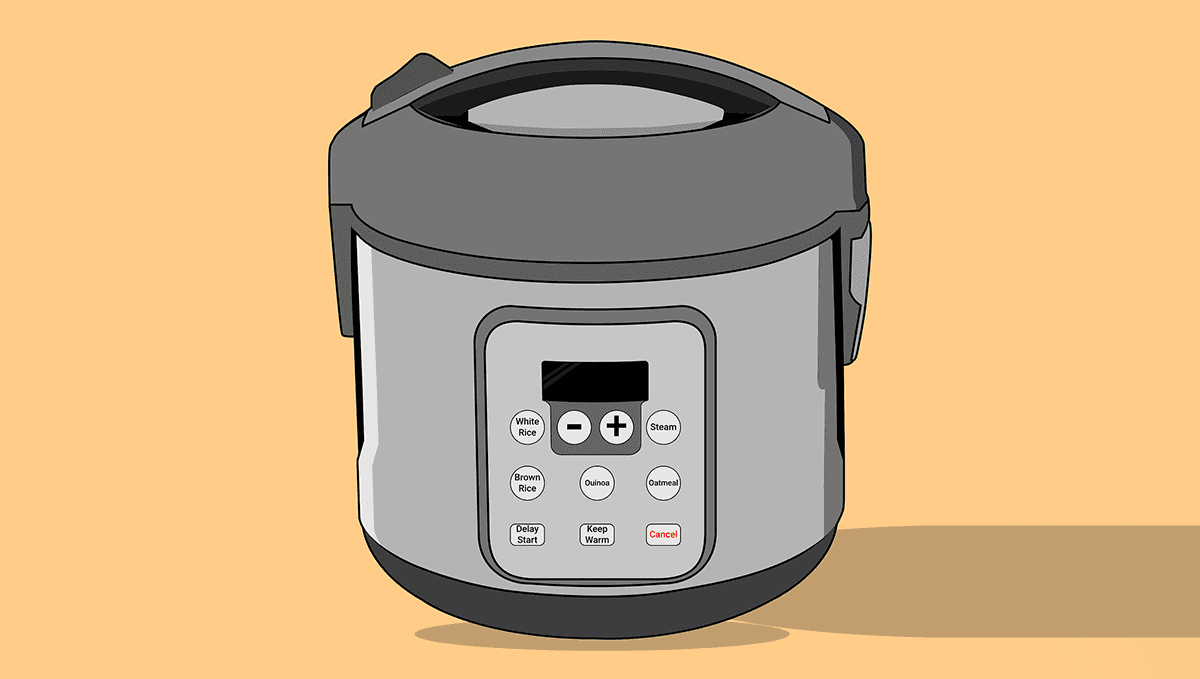
The best temperature settings for evaporation are between 210-230 °F (100-110 °C). Don't forget that at temperatures above 230 °F (150 °C) THC and other cannabinoids start to burn off and the potency goes out the window.
Step 5. Draw your finished product into syringes
Once your RSO looks like tar and is very oily and viscous (meaning that no solvent residue is left), draw this dark-colored resin into plastic syringes and use them for storing and dispensing your medicine.
How to Use RSO Oil?
As we said before, RSO can be administered both topically (on the skin) or orally (with food). Rick Simpson himself put the medicine on his skin cancer, but many of his followers, inspired by his story and countless other anecdotal reports, use it for all kinds of other tumors and consume it internally.
Whatever you choose, always start by consulting your physician. Spoiler alert: most of them will advise you against this even where cannabis is legalized for medical use. Doctors tend to be very conservative – it comes with the territory.
The use of RSO is highly ritualized – not because there's clinical research that has come up with exact dosages and a strict regimen of treatment but because there's something very shamanic about the whole thing. The goal is to start low and slow and gradually increase the intake until you have consumed 60 grams in 90 days.
Week 1. Start with a tiny drop three times a day
The dose for the first four days should be a drop the size of half a grain of rice three times a day. Though it doesn't sound like much, the effects can be very noticeable and even overwhelming, especially for first-time users. Don't worry: at the very least, the strong high will signal that you're not taking a placebo, and then self-suggestion will kick in, which is a powerful therapeutic thing all in itself.
Your goal is to sustain the needed levels of cannabinoids in your system, so take RSO at regular intervals (every 8 hours): in the morning, the afternoon, and before bed.
Weeks 2-5. Gradually ramp up the intake
Every four days or so, double the dose until you reach 1 gram per day and can then plateau. This stage can take anywhere from 3 to 5 weeks. The perceived effects will get more and more intense, but some tolerance will start to build up as well.
Weeks 6-12. Stay at the 1-gram-per-day level
Consuming 1 gram a day means taking a drop of RSO about 8-9 times bigger than a grain of rice three times a day. Continue this course of treatment until you consume all 60 grams.
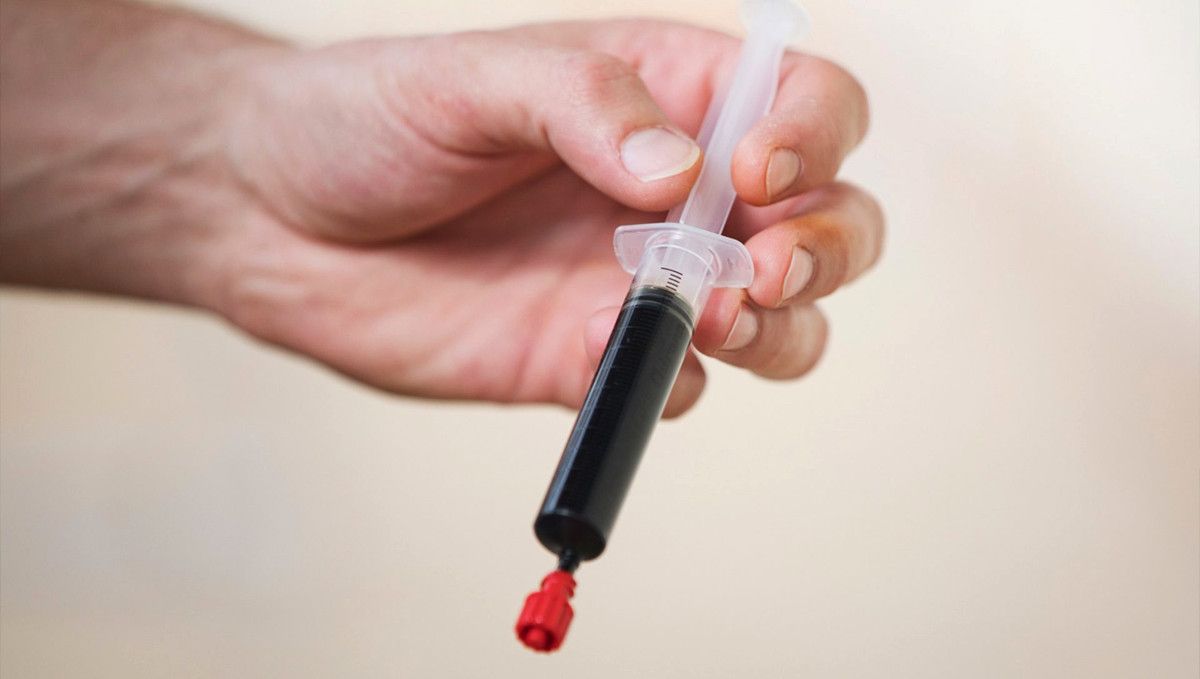
Can RSO Treat Cancer?
Rick Simson oil isn't a standardized farmaceutical. Rather, it's a homemade concoction, and, as such, it has never been studied for cancer or any other ailments. Medical marijuana in general, however, has been researched more than enough to suggest that cannabinoids can be in fact helpful for cancer patients.
There's evidence that cannabis helps those who undergo chemotherapy because THC suppresses nausea and vomiting and relieves the aches and pains chemotherapy causes. Cannabis is also a well-known appetite stimulant, and it's priceless for those whose tumors cause them to lose weight.
But besides the symptom relief and generally making life less unbearable, can weed and RSO in particular actually cure cancer? Unfortunately, there's still no hard evidence to support this claim. The golden standard here is clinical trials, but no medical center in the world has so far conducted any such studies on humans.

There's some preliminary research though. In-vitro and animal-model experiments have shown that treating malignant tumors or cancerous cell cultures with cannabinoids results in many beneficial effects. The sick cells stop proliferating and spreading, some of them are forced to commit apoptosis (a kind of cell suicide), and blood vessels inside tumors stop growing and feeding cancer.
Unfortunately, there's also a quite disturbing study that demonstrated how cannabinoids triggered a certain signal path in cancerous cells that actually helped them survive. The bottom line is that we don't know anything for sure and more research is needed.
Side Effects of RSO
Let's start with the most dangerous thing that can happen to you. It's when you stop some traditional cancer treatment prescribed by your doctor and pin all your hopes on Rick Simpson oil. What if it doesn't work? What if you reject a potentially life-saving therapy for glorified snake oil? Doctors don't know everything, and they're notoriously averse to risk, but YOU know even less, and Internet stories are just that... stories. Are you ready to bet your life on them?
Again, be sure your RSO oil has absolutely no solvent left as solvents can be pro-cancer and thus make things even worse for you. Don't forget about legal stuff either. Going to jail is a bad treatment strategy. However, the most common side effects are those associated with marijuana use in general:
- Fatigue
- Inability to concentrate
- Short-term memory deficits
- Red eyes and cottonmouth
- Accelerated heart rate
- Anxiety and paranoia
- Poor coordination and reaction times
- Risk of addiction and withdrawal syndrome
Also, never forget how dangerous it can be to drive under the influence of psychoactive drugs, and cannabis is no exception. And pay attention to what other substances you take alongside RSO. Especially dangerous is the combination of marijuana with sedatives, antidepressants, and opioids.
RSO vs FECO (Full Extract Cannabis Oil)
FECO is a good alternative to RSO. FECO, which is an acronym for Full Extract Cannabis Oil (FECO), is a concentrated cannabis oil that aims to retain as many cannabinoids and compounds in general) as possible. FECO should include not only cannabinoids like THC and CBD but also terpenes and flavonoids among others. However, there are some key differences between FECO and RSO oil, they are:
Extraction method of FECO
FECO utilizes a more refined extraction process that employs solvents such as CO2 or ethanol, ensuring a broader spectrum of chemical compounds in the FECO oil.
Appearance of FECO
FECO also differs in its consistency, as it often has a more liquid, syrup-like consistency.
Uses of FECO
FECO can be used recreationally. FECO may provide intense psychoactive effects just like smoking cannabis, unlike RSO which is associated with medical use.
The Bottom Line
We believe our article has answered your questions such as 'What is RSO oil?' and 'What is RSO oil used for?', and 'RSO vs FECO', but before starting any treatment, take a moment to weigh all the evidence. The study that has found the pro-cancer action of cannabis (see above) is especially disturbing. Of course, there's much more research suggesting that cannabinoids are anti-cancer, but the bottom line is that we still don't know for sure and large-scale clinical trials are direly needed. One thing is clear: using Rick Simpson oil isn't a reason to stop any conventional treatment recommended by your doctor. You should also discuss with your doctor whether you should use RSO or other forms of medical marijuana as a supplementary therapy. Stay safe!
FAQ
Does Rick Simpson Oil (RSO) contain THC?
The answer depends on the strain of cannabis that you use to make RSO. The classic Rick Simpson recipe uses very high-THC strains, and the extraction makes the finished product only more potent. However, you can also use high-CBD / low-THC strains, including hemp. RSO produced from such plant material will still have some THC but not much.
Can you overdose on Rick Simpson Oil (RSO)?
It's possible to overdose on marijuana in general and Rick Simpson oil in particular, but it's not the kind of overdose that threatens your life or even your health. It can be extremely unpleasant – with dizziness, fainting, and vomiting – but never fatal. There won't be any long-term side effects either.
Can you smoke or dab RSO?
You can certainly dab RSO. Smoking it is less convenient but also possible. Please keep in mind that both these methods of consumption make the onset much quicker (almost instant) and certainly more intense compared with oral consumption. When dabbed or smoked, RSO effects don't last as long.
Can you cook with RSO oil?
You certainly can. Besides taking it straight, you can add RSO to any dish of your choice. The cooking times are usually not long enough to degrade THC or other cannabinoids. Please bear in mind that when your stomach is full, the absorption of RSO can be very slow. The abundance of fat in your food, on the contrary, facilitates absorption.
Why is RSO banned in many countries?
The reason RSO is banned almost everywhere is that it's produced from THC-rich cannabis and both THC and cannabis are illegal in many countries and states. It can be used with doctor's recommendations in jurisdictions where medical marijuana has been legalized, and it can be consumed by any adult in countries and states with recreational marijuana laws.
Where is Rick Simpson today?
Rick Simpson is very much active on Twitter and Facebook and you can try and contact him there. However, don't count on his becoming your supplier – he only provides the recipe but doesn't produce or sell RSO. There are unconfirmed reports that he lives in Zagreb, Croatia.
External Links
- Preclinical and Clinical Assessment of Cannabinoids as Anti-Cancer Agents, Front. Pharmacol., 07 October 2016
- The Combination of Cannabidiol and Δ9-Tetrahydrocannabinol Enhances the Anticancer Effects of Radiation in an Orthotopic Murine Glioma Model, Katherine A. Scott; Angus G. Dalgleish; Wai M. Liu, Dec 2014
- Potential Use of Cannabinoids for the Treatment of Pancreatic Cancer, J Pancreat Cancer. 2019
- Antineoplastic activity of cannabinoids, J Natl Cancer Inst. 1975 Sep
- Cannabinoids Induce Cancer Cell Proliferation via Tumor Necrosis Factor α-Converting Enzyme (TACE/ADAM17)-Mediated Transactivation of the Epidermal Growth Factor Receptor, Stefan Hart; Oliver M. Fischer; Axel Ullrich, March 2004
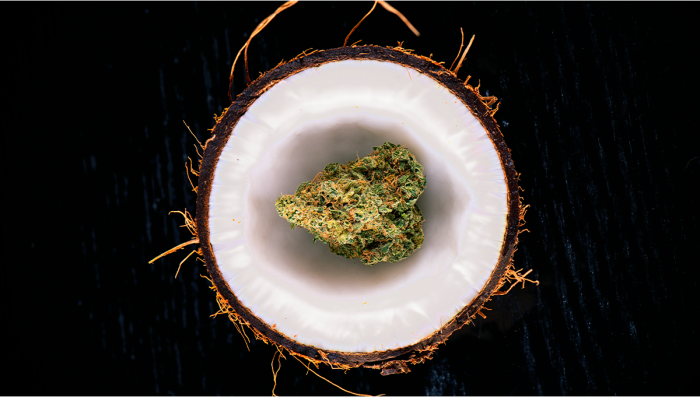










Comments